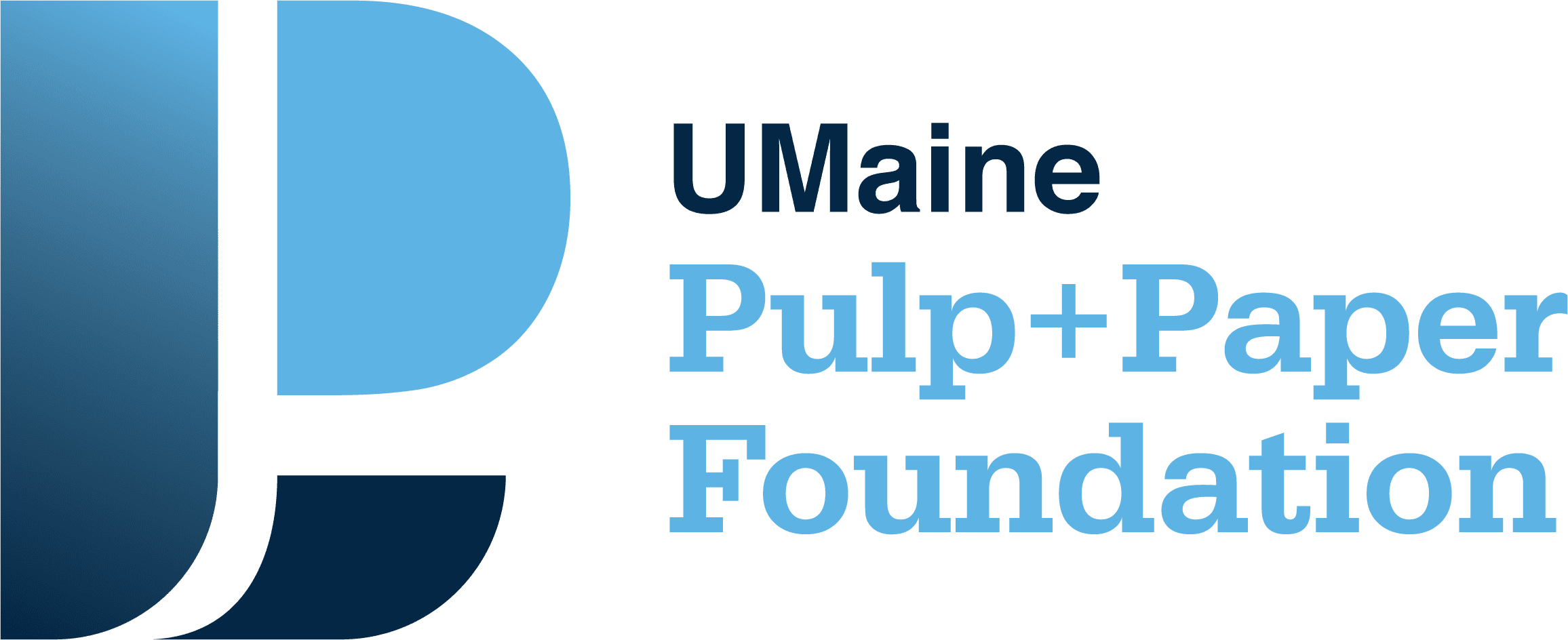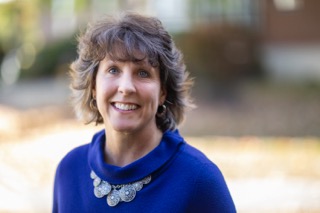An Engineering degree is challenging, but you’re never alone on the journey. Fellow students, alumni and mentors in the field want to help you! Whether they’ve been in the industry for five years or thirty years, they’ve likely been through a lot and can offer advice for finding your way.
Here’s our conversation with Beth Cormier, Vice President of R&D and Sustainability at SAPPI North America. She’s been an extension of the UMPPF community for several years and is sharing her experience with the intent to help you reach success!
UMPPF: Beth, we always love talking with you and we appreciate you spending time with us today. Let’s jump in. Where are you currently working and what has your career trajectory been since graduating?
BETH: I’m with Sappi North America as VP of R&D and Sustainability. I began at SD Warren in R&D which was purchased in 1994 by Sappi. I was fortunate to have opportunities in several functions which helped broaden my business perspective. I had a manufacturing assignment in 1991 when the 3rd paper machine was built at our Somerset mill, and I moved into a marketing role for 7 years after Sappi purchased Potlach in 2002.
While in Boston at the corporate office, I went back to school to earn an MBA. I then was given the opportunity to Lead the R&D function in 2008, moving back to Maine at that time. Recently the role of sustainability was added recognizing this as an important business system.
UMPPF: Wow, so you’ve been with SAPPI for quite some time now. What was it like to go out into the field on your own after graduation?
BETH: SD Warren at that time had an apprentice program which allowed me to be part of a group of new hires. We rotated through different business assignments for a year, and this was a great way to build shared experiences and minimize the level of anxiety entering the working world.
UMPPF: Usually now is when we ask alumni how UMPPF prepared them for the real world. But you have a different story. Want to explain?
BETH: Interestingly, I was not part of the UMPPF program! I was an Engineering Physics major and unlike the chemical engineering department at that time, our curriculum was not set up for internship with a summer make-up term to ensure a 4-year matriculation.
I did complete an 8-month internship at Maine Yankee Nuclear Power plant and as a result I had to study an extra semester.
UMPPF: We’re so happy that you’re involved with UMPPF now! Has anything in the industry surprised you since graduating?
BETH: The adaptability of the industry in general. Several companies look a lot different than 30+ years ago when I entered the industry. All industries go through changes as buying habits change and impacts from social and environmental considerations come to light.
The adaptability of our industry to promote our renewable solutions has been nice to see. The growth of females into our industry is a nice change, as well as the globalization and access to many cultures of scientists and engineers.
UMPPF: We’re glad you mentioned women in the industry because we think that it’s a common misconception that “women aren’t engineers” or aren’t joining STEM fields. What do you think are common misconceptions about the industry?
BETH: That our industry causes more environmental issues than it helps solve. We are one of the most self-sustaining industries when it comes to energy. The creative things that can be done with cellulose in providing more renewable solutions to the market are many.
From recyclable packaging to housing materials to cosmetics to agricultural aids… and many more. Our industry is working to better educate the public on this. One fact that is heavily misunderstood (is deforestation). There are more trees in North America today then there were 50-60 years ago, predominantly because of our industry’s stewardship.
UMPPF: That’s incredible! We know you weren’t part of UMPPF in college, but what is one thing you wish you had taken advantage of in college that you’d like to pass on to current students?
BETH: I wish I had reached out to other University resources to better understand the programs available. Who knows, I may have gone into chemical engineering instead of Engineering Physics! I am happy to see that more disciplines are entered into the program today.
UMPPF: Yes, reaching out and taking advantage of resources is a gamechanger for our students. If the young people in your life were considering the UMPPF program, what would you share with them?
BETH: Take advantage of the great resources in the program, (especially the program leaders) Carrie and Jen. They help students navigate the University system and most importantly are very generous with their time in offering life advise when needed.
UMPPF: Carrie and Jen are mama bears of sorts—they’re completely invested in their students. Speaking of students, how would you recruit new students to the program?
BETH: We need to continue educating younger minds on the significant career options that our industry provides. In addition, focus on the many ways our industry promotes and provides renewable solutions to the market and is a significant positive contributor to combating climate change.
UMPPF: Climate change action and environmental stewardship is a non-negotiable with younger generations—and thank goodness—we need their energy and dedication. Do you have advice for current students in the program?
BETH: Take the opportunity to cross fertilize with other engineering disciplines and scientists and in general BE CURIOUS. When you are in your internship assignments remember that 70% of authority is taken—not given. Don’t be afraid to be assertive.
UMPPF: Yes, curiosity, having confidence, and taking chances are all so important to student engineers—and professional engineers! Thank you so much, Beth.
If this conversation got you thinking about an engineering degree, we’d be so happy to meet you! Reach out to Carrie and Jen at the UMPPF by visiting our contact page.


Recent Comments